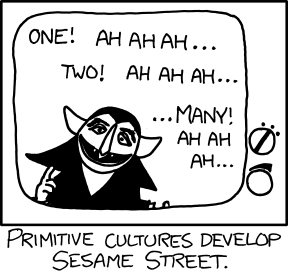More on basic sentence interpretation
Last Friday, I took a quick look at recent work by James Street and Ewa Dabrowska that shows a striking difference between grad students and people of "low academic attainment" ("LAA") on an apparently simple sentence-interpretation task ("'Unable to understand basic sentences?'", 7/9/2010). I had to cut my investigation short in order to take the RER-B to Charles de Gaulle airport for a flight back to Philadelphia, and so I didn't have a chance to take up (what I thought was) the most striking aspect of these experiments: the fact that the LAA subjects did so much better on sentences of the form "Every X is in a Y" than on sentences of the form "Every Y has an X in it".
Read the rest of this entry »

